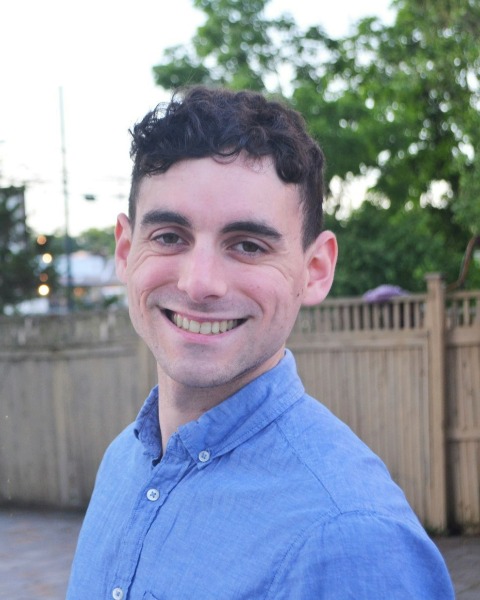Symposia
LGBTQ+
2 - (SYM 8) A Strengths-based, Intersectional Analysis of General Belongingness and Status as Moderators of the Association Between Community-specific Belongingness and Perceived Stress Among Gay and Bi+ Men

Benjamin F. Shepherd, M.S., M.Ed. (he/him/his)
Nova Southeastern University
Dania Beach, Florida, United States- RL
Roberto López Jr., Ph.D. (he/him/his)
Postdoctoral Fellow
Department of Psychiatry and Biobehavioral Sciences, University of California, Los Angeles
Los Angeles, California, United States - JM
Janell Mensinger, Ph.D. (she/her/hers)
Associate Professor
Department of Clinical and School Psychology, Nova Southeastern University
Fort Lauderdale, Florida, United States - PB
Paula M. Brochu, Ph.D.
Associate Professor
Nova Southeastern University
Fort Lauderdale, Florida, United States
Speaker(s)
Co-author(s)
Mounting research identifies identity-based social stressors (i.e., threats to belonging needs) as a likely explanation for mental health disparities faced by marginalized groups (e.g., gay and bi+ men), but rarely examines factors that facilitate and modulate resilience in the context of intersecting systems of oppression. To inform prevention and intervention efforts, we examined the main effect of community-specific belongingness (i.e., feeling connected and integral specifically within the gay/bi+ community) on perceived stress among gay and bi+ men, as well as the potential moderation of this effect by general belongingness and stigma-driven indicators of status, namely perceived masculinity, race/ethnicity, and relationship status. Participants were recruited in the U.S. via Prolific (N=395; Mage=36.32, SD=12.52, ages 18-81; 90% cisgender; 58% bi+; 53% non-Hispanic White). Analyses were conducted using linear regressions. As expected, community-specific belongingness was associated with lower perceived stress, b=-.46, SE=.05, p< .001, as was general belongingness, b=-.84, SE=.05, p< .001. Furthermore, community-specific belongingness interacted with general belongingness, b=.11, SE=.04, p=.013, such that the effect of community-specific belongingness on perceived stress was stronger for participants with lower levels of general belongingness. By contrast, the effect of general belongingness on perceived stress was stronger for participants with higher levels of community-specific belongingness. In addition, both forms of belongingness interacted with masculinity, bs=-.14--.15, SEs=.07, ps=.030, favoring gay and bi+ men with higher levels of masculinity. Community-specific, but not general, belongingness interacted with relationship status, b=-.26, SE=.10, p=.011, favoring partnered gay and bi+ men. General, but not community-specific, belongingness interacted with race/ethnicity, b=.19, SE=.09, p=.034, favoring non-Hispanic White gay and bi+ men, b=-.93, SE=.06, p< .001, over gay and bi+ men of color, b=-.74, SE=.06, p< .001. Of note, the effects of belongingness on perceived stress remained significant across all groups, regardless of status. Findings emphasize the importance of satisfying belonging needs through general and community-specific social connections and considering intersectionality. Status-relevant attributes that transcend gay/bi+ and heterosexual communities may maximize or limit gay and bi+ men’s ability to satisfy these needs, resist stigma, and cope with stress.

.png)
